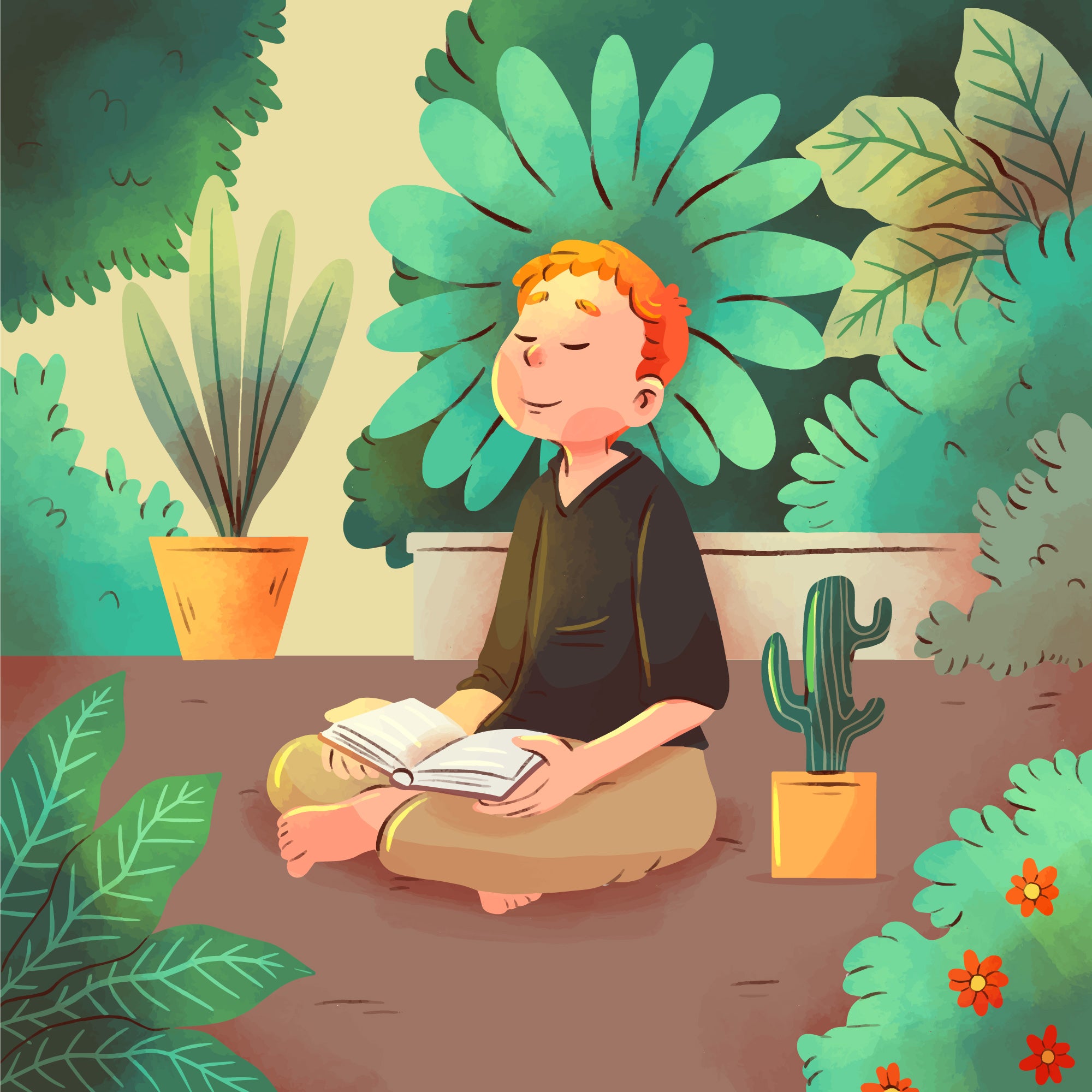Anxiety is a common occurrence in everyday life. Living in a hectic world is the cause of it. But not all anxiety is harmful. It alerts you to potential threats, encourages you to maintain order and readiness, and aids in risk assessment. However, it's important to take action before worry spirals out of control when it occurs on a daily basis.
Your quality of life may be significantly impacted by untreated anxiety. Try out the strategies below to regain control.
What is anxiety?
Your body's natural reaction to stress is anxiety. It's a sensation of anxiety or concern that may be brought on by a number of variables, including heredity, the environment, and even brain chemistry, according to experts.
Anxiety is frequently accompanied by symptoms like an
- elevated heart rate.
- breathing quickly
- feeling restless
- difficulty in focusing
It's crucial to remember that worry may manifest itself differently for various people. While one individual could feel that their tummy is about to start to flutter, another person can have panic attacks, nightmares, or terrible thoughts.
Having said that, there is a distinction between normal anxiety and anxiety disorders. It's one thing to be apprehensive about something new or upsetting, but it may become a problem if your anxiety becomes unmanageable or overwhelming to the point that it interferes with your quality of life.
Anxiety disorders can manifest as:
- panic disorder
- post-traumatic stress disorder (PTSD)
- obsessive-compulsive disorder (OCD)
- separation anxiety
- illness anxiety
- phobia
- generalised anxiety disorder (GAD)
- social anxiety disorder
Is Anxiety Treatable?
There are many different approaches to cure anxiety. Cognitive behavioural therapy (CBT) is a popular kind of treatment that gives patients techniques to manage their anxiety when it manifests.
Cognitive behavioural therapy is described as "psychotherapy that integrates cognitive therapy with behaviour therapy by identifying incorrect or problematic patterns of thought, emotion, or behaviour and replacing them with desired patterns of thought, emotion, or conduct."
But there are both little and significant natural methods you may assist in managing anxiety if you want to take a more holistic approach. You can change your eating, sleeping, and exercising routines. You may even give something completely novel a try, like meditation or aromatherapy. Everybody can find a natural technique to assist relieve anxiety, regardless of their lifestyle requirements.
10 Natural Ways to Combat Anxiety
1. Go Physical
Regular exercise may significantly improve your mental health in addition to your physical health. People with anxiety disorders who reported engaging in a lot of physical exercise were better able to stave off the onset of anxiety symptoms.
There are several potential causes for this. Your focus might be drawn from an anxious-inducing situation by engaging in physical activity. Additionally, increasing your heart rate alters the chemistry of your brain to make room for anti-anxiety neurochemicals like:
- serotonin
- gamma-aminobutyric acid (GABA)
- brain-derived neurotrophic factor (BDNF)
- endocannabinoids
2. Say no to alcohol!
Since alcohol is a natural sedative, it may initially help to ease the discomfort. However, evidence indicates a connection between anxiety and alcohol use, with alcohol use disorders (AUD) and anxiety disorders frequently coexisting.
Alcohol has also been shown to disrupt the sleep-wake cycle, which inhibits your body from falling asleep on its own. And as we'll see later, overcoming anxiety requires a restful night's sleep.
3. Quit Smoking Cigarettes
Smokers frequently light up a cigarette while under pressure. However, smoking while you're anxious is a temporary cure that might make anxiety worse over time, similar to consuming alcohol.
Although nicotine has antidepressant and anxiolytic properties, persistent usage can lead to nicotine adaptations, which can lead to increased anxiety and depression during withdrawal.
4. Limit Your Caffeine Consumption
In the event that your anxiety is chronic, caffeine is not your friend. Caffeine may make you restless and upset if you're feeling unsettled, neither of which is beneficial. According to studies, caffeine may lead to or worsen anxiety issues. It can potentially cause panic attacks in people with panic disorder. In some people, caffeine withdrawal significantly lessens the feelings of anxiety.
5. Prioritise getting a good night’s rest
Obtaining adequate sleep is essential for preserving optimal mental health. Those who slept more deeply at night had the lowest levels of anxiousness the next day.
6. Meditate and practice mindfulness
Meditation's fundamental purpose is to achieve complete awareness of the present moment, which involves recognising all thoughts in a non-judgmental manner. This can lead to a sense of serenity and contentment by improving your ability to accept all thoughts and feelings consciously. Meditation has been shown to reduce stress and anxiety and is a key component of CBT.
30 minutes of daily meditation may relieve some anxiety symptoms and work as an antidepressant.
How to meditate
There are nine different styles of meditation:
- mindfulness meditation
- spiritual meditation
- focused meditation
- movement meditation
- mantra meditation
- transcendental meditation
- progressive relaxation
- loving-kindness meditation
- visualisation meditation
7. Eat a balanced diet
Some people may experience mood changes due to low blood sugar levels, dehydration, or chemicals in processed meals such as artificial flavourings, artificial colouring, and preservatives. A high-sugar diet may also have an effect on temperament.
Check your eating habits if your anxiety intensifies after eating. Drink enough water, avoid processed foods, and eat a well-balanced diet high in complex carbs, fruits and vegetables, and lean meats.
8. Practice deep breathing
Anxiety is characterised by shallow, rapid breathing. It can cause a racing heart, dizziness or lightheadedness, and even a panic attack. Deep breathing techniques, which involve taking slow, even breaths, can help reestablish regular breathing patterns and reduce anxiety.
9. Try aromatherapy
Aromatherapy is a natural therapeutic technique that has been utilised for thousands of years by humans. Natural plant extracts and essential oils are used in the practice to enhance the health and well-being of the mind, body, and soul. Its purpose is to improve both physical and mental wellness.
Natural plant extracts produce essential oils that may be breathed directly or added to a warm bath or diffuser. Aromatherapy is recommended for:
- help you relax
- help you sleep
- boosts mood
- lowers heart rate
- lower blood pressure
Some essential oils that are said to reduce anxiety include:
- bergamot
- lavender
- clary sage
- grapefruit
- ylang ylang
10. Drink chamomile tea
A cup of chamomile tea is a popular home treatment for calming anxiety and promoting sleep. Chamomile has been shown to be a great ally against GAD.
Takeaway
If you're feeling worried, the suggestions above may help. Remember that while home remedies might help relieve anxiety, they are not a substitute for professional care. Anxiety may necessitate treatment or prescription medication. Discuss your concerns with your doctor.


